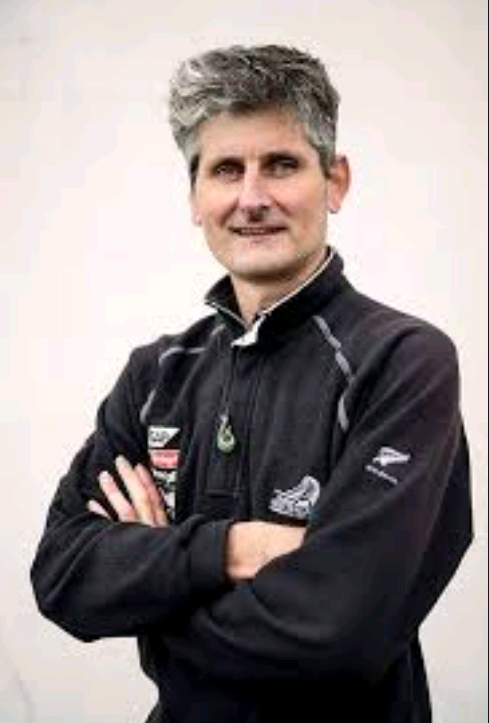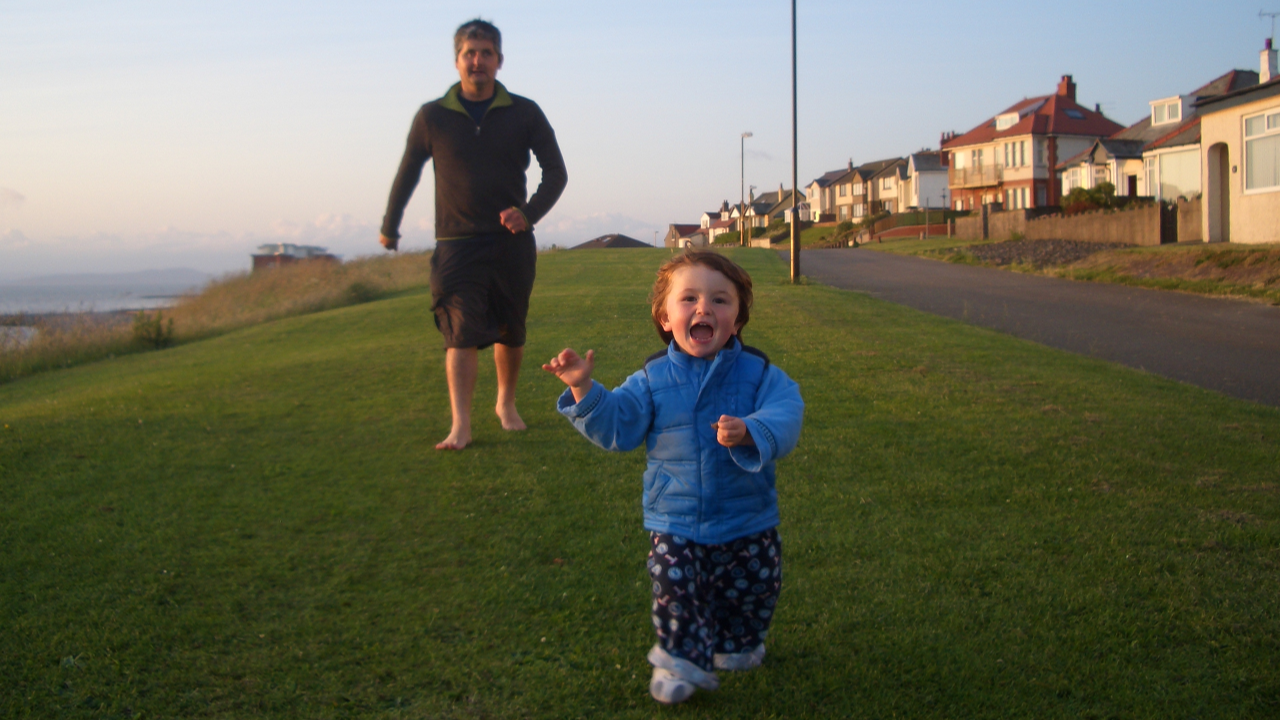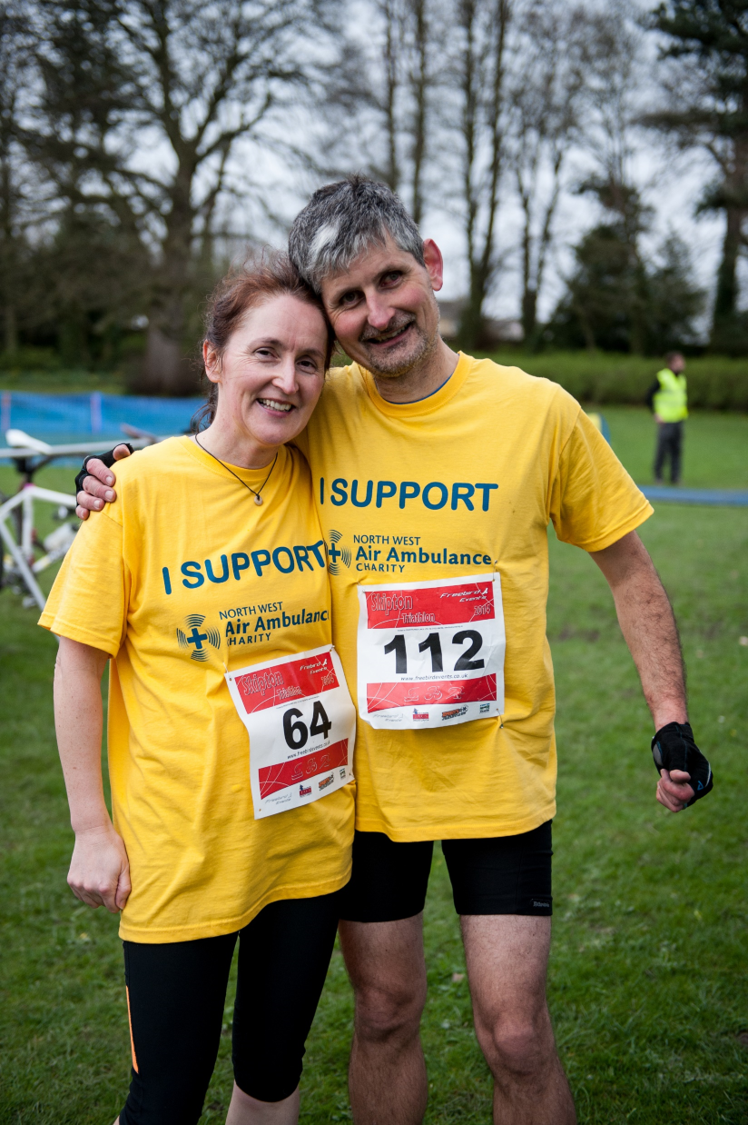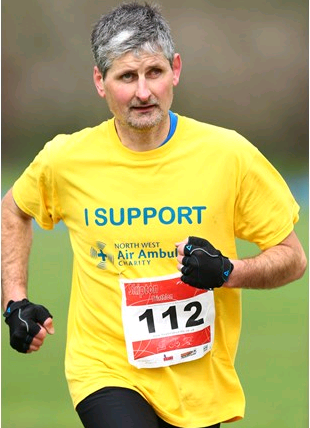In January 2007 Jason Le Masurier who attends the School in Derry was kitesurfing on Blackpool beach when tragedy struck, leaving him paralysed down his left side.
Twenty months and nine operations later, the former university lecturer left hospital in a wheelchair, having been told that he would need 24-hour care for the rest of his life and would see no further improvement. To everyone’s surprise, in August 2009, not even a year after leaving hospital, he not only walked but jogged down the aisle at his wedding. Read Jason’s story of resilience and recovery from a brain injury …
Jason Le Masurier

In January 2007, I suffered a severe brain injury in a kite-surfing accident. This was 355 days after I bumped into my future wife, Liz, at the Sydney Botanic Gardens. In the year leading up to my accident we had fallen madly in love. We were planning our wedding and Liz was three months pregnant when I was lifted by my kite and dropped on my head at Blackpool beach. My life was saved by the fast response of the North West Air Ambulance getting me to hospital in less than an hour. I spent three weeks in a coma in intensive care followed by months fraught with anxiety for Liz and my family, as I swung between life and death.
For someone who had been so fit and busy, it was a shock for me to discover that I was now completely paralysed on my left hand side, and entirely dependent on hospital staff for basic needs. I suffered severe fatigue, and for several months I was unable to hold a conversation. My appearance and personality had changed dramatically, which was hard for Liz and my family to come to terms with. I had gone from being a fun-loving, caring and committed father and partner, to a frail, vulnerable and irascible man. My main daily concerns changed radically, from academic research and international consultancy, to managing basic bodily functions. I developed complications which nearly resulted in my death in hospital. Another fall from a wheelchair caused further serious injuries to my frontal lobe and within the first year I had nine operations on my head.
Our son Jack was born in June that year. I was wheeled into the delivery room, but was so weak I could barely hold up my head to witness Jack’s birth. Afterwards, I was wheeled back to my high support ward, while Liz returned home to our rented accommodation and life as a single parent.
By the time of my 40th birthday that September, I was being fed via a tube and had been told I would not make any further recovery. Liz was traumatised when told I would be bed-ridden for life, incontinent and unable to eat or drink independently. I received some rehabilitation but after nearly two years I left hospital with assurances from my doctor that I would never be capable of walking or even standing again and would always need 24 hour care. To the collective amazement of the medical staff, after my escape from the prison that hospital had become for me, my recovery was quite dramatic. I refused to accept the doctors’ prognosis, and was determined that I would walk again. With the help of physiotherapists and the unswaying support of my fiancée and family, I took my first steps two weeks after leaving hospital. Jack was also taking his first steps at this time. We were at the same stage, so I must be the only person ever that can say they learned to walk with their son! This apparently miraculous development was followed by months of hard work in physio, and to everyone’s joy and disbelief nine months after leaving hospital I not only walked but (very unconventionally) jogged down the aisle on our wedding day!

Before my accident, my life in New Zealand reflected my love of adventure and the outdoors, which I delighted in sharing with my children. I had been a respected and capable university lecturer in Civil Engineering, and my career was on a steep upward trajectory. In the two years before my accident, as well as teaching my life had been an exciting succession of engagements around the world, with presentations at conferences in San Francisco, Florence and Helsinki and research tours of the USA and Japan. Just before meeting Liz in 2006, I had bought a yacht which I saw as the means of achieving my lifelong dream of sailing round the world. With Liz by my side, it seemed as if life couldn’t get any better. We were ecstatic. What could possibly go wrong?
After my accident I was determined to regain my old life and I managed to get appointed to a lecturing position at Bath University. However the fatigue and cognitive issues took their toll and by the end of 2011 my psychologist advised me to resign and feeling humiliated, I stood down.
During my physical recovery, which included relearning to run, swim and ride a bike, I had been inspired by my physio to do a triathlon. Liz joined me in my training, and five years after leaving hospital we went back to the doctor who told us I would never walk again and asked him to sponsor us for the Skipton Triathlon! (We raised over £1000 for the air ambulance)

We feel the key factors in my recovery include determination, love and hard work. Also prayer – Liz really believes a miracle brought me back, and when she had no other source of hope, her faith was her solace.
It's a lifelong challenging journey to full recovery. The school of practical philosophy is bringing me so much practical support and insight into the effects of my injury on my brain and my level of self connection. I find the meditation helpful in gaining some connection with the reality of the present. I know that I analyse things too much but I think that due to the damage to my frontal lobe I find it hard to be in the moment. I think this also hampers my practice. As with my entire recovery process I will persevere with this because I believe that it's such a blessing and so important to be present in the moment.
Rather than being victims, we want to use our crisis in a positive way, to inspire other people experiencing similar overwhelming circumstances, to be resilient and never lose hope. We are starting a new initiative called Hope After Brain Injury Trauma (HABIT). We aim to give inspiration and to help others overcome the challenges of recovery.
The lessons I have learned about recovery from a crisis are applicable widely and I now give speeches and workshops, both remotely and face to face, to businesses, schools and organisations, on resilience and thriving in a crisis. You can see more at: jasonlemasurier.com.

